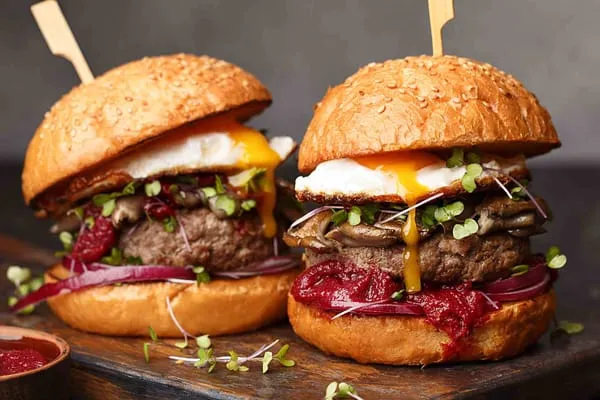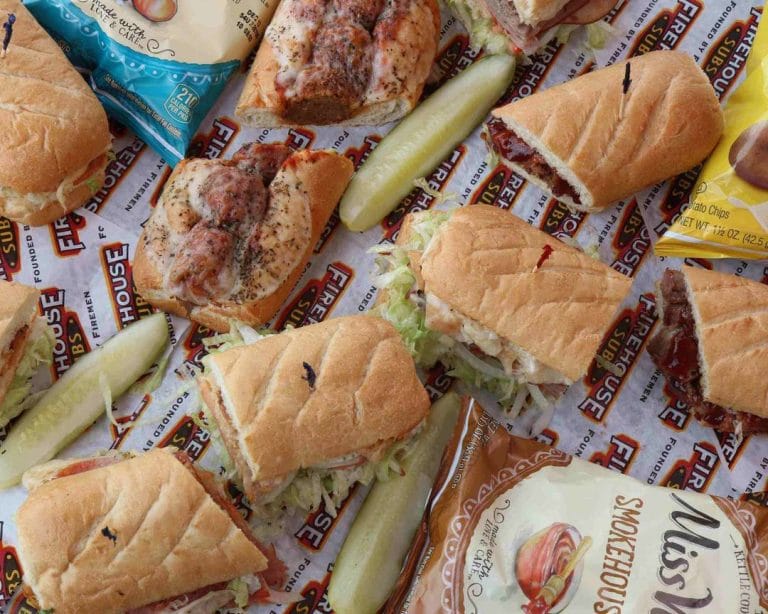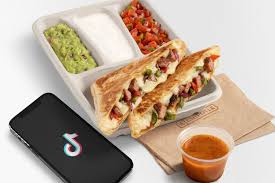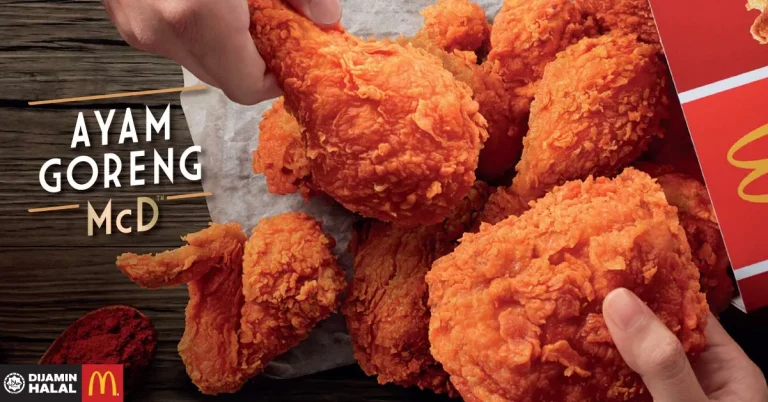The 7-Day Gallbladder Diet Menu offers a practical approach to eating that emphasizes low-fat, high-fibre foods while avoiding potential triggers that can exacerbate gallbladder issues. This meal plan is designed to support healthy bile production and provide delicious, satisfying meals that are easy to prepare. Managing gallbladder health can be challenging, mainly when gallstones cause discomfort and disrupt digestion.
A well-structured diet is essential for alleviating symptoms and promoting overall wellness. By following this simple yet effective menu, you can experience relief from discomfort and take proactive steps toward maintaining your gallbladder health. Dive into our carefully crafted meal plan, featuring nutrient-rich ingredients that nourish your body and help you feel your best, and consider adding a beet root supplement to further support digestion and overall wellness.
Understanding Gallstones and Gallbladder Function
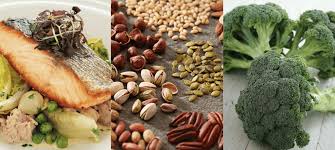
Gallstones are hardened deposits of digestive fluid in the gallbladder—this small organ, located beneath the liver, stores bile produced by the liver to digest fats. Gallstones can be as small as a grain of sand or as large as a golf ball. These stones form when there’s an imbalance in the substances that make up bile, such as cholesterol or bilirubin.
They can lead to severe pain, mainly if they block bile ducts, disrupting the flow of bile. Symptoms may include nausea, vomiting, and intense abdominal pain. The gallbladder’s primary role is to release bile into the small intestine, aiding digestion. However, when gallstones obstruct this function, it impacts digestion and can lead to complications. Understanding this process highlights the importance of dietary management in preventing gallstone formation and ensuring smooth digestion.
Importance of Diet in Gallbladder Health
Dietary management plays a crucial role in maintaining gallbladder health and mitigating the discomfort caused by gallstones. A well-planned diet helps regulate bile production and ensures smooth digestion without overburdening the gallbladder. Focusing on low-fat and high-fiber foods can reduce inflammation and support overall digestive wellness. Incorporating lean proteins, like chicken and fish, offers essential nutrients without adding excess fat. Additionally, whole grains such as brown rice and quinoa provide the fibre for healthy digestion, which some people further support with a tudca supplement amazon to promote liver and gut health.
On the other hand, avoiding high-fat and fried foods is essential to prevent gallbladder strain. Moderation in the consumption of nuts and sparingly using healthy fats like olive oil can also be beneficial. Small, frequent meals can further aid in better bile management. This strategic approach to eating not only alleviates symptoms but also promotes long-term gallbladder health.
Day 1 Sample Meal Plan
| Meal | Food Description | Nutritional Highlights |
| Breakfast | Oatmeal topped with fresh berries and sliced almonds | Fiber-rich, satisfying |
| Lunch | Grilled chicken salad with mixed greens, tomatoes, cucumbers, and carrots, dressed with low-fat vinaigrette | Lean protein, vitamins, and minerals |
| Snack | Apple slices with a tablespoon of almond butter | Blend of fiber and healthy fats |
| Dinner | Baked salmon with roasted broccoli and quinoa | Omega-3 fatty acids, essential nutrients |
| Hydration | Drink plenty of water throughout the day | Aids digestion |
Days 2
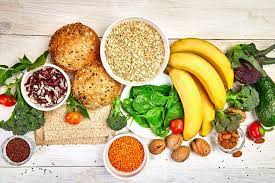
| Meal | Food Item | Nutritional Benefits |
| Breakfast | Whole-wheat toast topped with scrambled eggs and spinach | Balanced protein and fiber |
| Lunch | Lentil soup with a side salad of mixed greens and light vinaigrette | Rich in nutrients, fiber, and antioxidants |
| Snack | Fresh pear with a slice of low-fat cheese | Combines sweetness and creaminess |
| Dinner | Turkey chili served over brown rice | Lean protein and whole grains for satiety |
| Hydration | Water throughout the day | Aids digestion and helps prevent gallstones |
Day 3
| Meal | Dish | Ingredients | Benefits |
| Breakfast | Greek yogurt with fresh berries and chia seeds | Greek yogurt, fresh berries, chia seeds | High in protein and fiber; keeps you full |
| Lunch | Grilled chicken breast sandwich | Whole-wheat bread, grilled chicken breast, lettuce, tomato, avocado | Nutrient-rich, lean protein with healthy fats |
| Snack | Carrot sticks with hummus | Carrot sticks, hummus | Crunchy, satisfying, and nutritious |
| Dinner | Baked cod with roasted sweet potatoes and green beans | Baked cod, sweet potatoes, green beans | Lean protein and nutrient-dense vegetables |
| Hydration | Water | Water | Aids digestion and overall health |
Day 4
| Meal | Ingredients | Description |
| Breakfast | Low-fat yogurt, banana, spinach, almond milk | Nutritious smoothie to kick off the day. |
| Lunch | Black beans, corn, grilled chicken | Refreshing salad with added protein for lunch. |
| Snack | Apple slices, almond butter | Satisfying snack combining fiber and healthy fats. |
| Dinner | Tofu, colorful vegetables, brown rice | Vibrant vegetarian stir-fry, filling and nutrient-packed. |
| Hydration | Water | Drink throughout the day to support digestion. |
Day 5
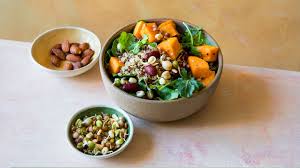
| Meal | Food | Notes |
| Breakfast | Warm bowl of oatmeal | Topped with chopped nuts and honey |
| Lunch | Tuna salad sandwich | Served on whole-wheat bread with lettuce and tomato |
| Snack | Cottage cheese | Paired with sliced cucumber and tomatoes |
| Dinner | Chicken breast with quinoa | Served with roasted Brussels sprouts |
| Nutrition | Focus on lean protein, whole grains, and fibre-rich vegetables | Drink water throughout the day for digestion |
Day 6
| Meal | Description | Nutritional Benefits |
| Breakfast | Scrambled eggs with chopped vegetables and a slice of whole-wheat toast | Provides protein, vitamins, and fiber |
| Lunch | Leftover lentil soup from Day 2 | Saves time, reduces waste, high in protein and fiber |
| Snack | Handful of mixed nuts and dried fruits | Quick energy boost, healthy fats |
| Dinner | Baked salmon with roasted asparagus and quinoa | Rich in omega-3s and fiber |
| Hydration | Drink water throughout the day | Supports digestion |
Day 7
| Meal | Dish Description | Key Ingredients | Notes |
| Breakfast | Whole-wheat pancakes topped with fresh fruit | Whole-wheat flour, fresh fruit | A delicious start to your day |
| Lunch | Chicken Caesar salad with light dressing | Chicken, romaine lettuce, light dressing | Refreshing and filling |
| Snack | Yogurt parfait layered with granola and berries | Yogurt, granola, berries | Perfect balance of crunch and sweetness |
| Dinner | Vegetarian chili with a slice of whole-wheat bread | Beans, vegetables, spices, whole-wheat bread | Hearty and nutrient-rich |
| Hydration | Drink water consistently throughout the day | Water | Supports digestion |
| Dietary Focus | Low-fat, high-fiber foods | Various fruits, vegetables, whole grains | Adjust portion sizes and ingredients as needed |
Recommended Food Groups
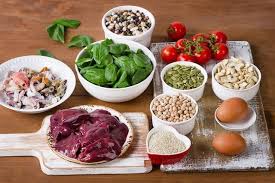
Fruits high in fiber, like apples, berries, and pears, are excellent. Cooked vegetables such as carrots, spinach, and green beans are easier to digest. Whole grains, including brown rice, quinoa, and oatmeal, boost fibre intake. Lean proteins, such as chicken breast, turkey, and fish, are essential. Plant-based proteins like tofu also work well.
Healthy fats in moderation are crucial, so use olive oil sparingly. These food groups not only support digestion but also help in reducing inflammation. Including a variety of these foods can provide essential nutrients without overburdening the gallbladder. This dietary approach ensures you get balanced nutrition while maintaining gallbladder health. Make sure to mix and match these groups for diverse and satisfying meals. Stay hydrated with plenty of water.
Foods to Avoid
| Category | Foods to Avoid | Reason |
| Fried Foods | French fries, fried chicken | Increase bile production demands, leading to discomfort |
| Creamy Soups | Soups high in saturated fats | Worsen symptoms due to high fat content |
| Fatty Meats | Bacon, sausage, fatty cuts of beef or pork | High in saturated fats, hard to digest |
| Full-Fat Dairy | Whole milk, full-fat cheese, cream-based items | Difficult to digest due to high fat content |
| Nuts | Excessive amounts of nuts | Healthy but can overburden the gallbladder in large amounts |
| Processed Snacks | Chips, cookies, and other snacks | Often contain hidden high-fat ingredients |
| Recommendations | Lean proteins, low-fat alternatives | Support gallbladder health through moderation |
Tips for Meal Preparation
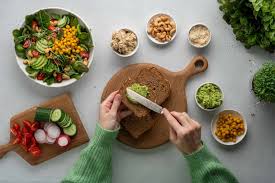
| Tip | Details |
| Plan Your Meals | Organize your meals ahead of time to ensure balanced eating. |
| Create a Shopping List | Avoid impulse buys by sticking to a pre-prepared list. |
| Choose Fresh Produce | Opt for fresh fruits and vegetables; frozen options are also suitable. |
| Batch Cooking | Prepare larger quantities of food (e.g., grilled chicken, cooked quinoa) to save time. |
| Utilize Leftovers | Incorporate leftovers into salads, soups, or stir-fries for quick meals. |
| Control Portion Sizes | Use measuring cups or a food scale to manage portion sizes, especially for gallbladder health. |
| Invest in Food Storage Containers | Choose high-quality, durable glass containers that do not retain odors. |
| Experiment with Herbs and Spices | Enhance flavor without unhealthy additives by using various herbs and spices. |
| Keep a Stocked Pantry | Maintain essential items like whole grains and lean proteins for quick meal preparation. |
| Stay Hydrated | Drink plenty of water to support digestion and prevent gallstones. |
Frequently Asked Questions
Can I eat dairy products on a gallbladder diet?
Low-fat dairy products are acceptable in moderation. Avoid full-fat dairy items as they can be hard to digest and may worsen gallbladder symptoms.
Are nuts completely off-limits for gallbladder health?
Nuts contain healthy fats and can be consumed in moderation. However, eating large amounts may strain the gallbladder, so portion control is crucial.
How much water should I drink each day to support gallbladder health?
Aim to drink at least eight glasses of water daily. Staying hydrated aids digestion and can help prevent gallstone formation.
Can I eat out while following a gallbladder diet?
Yes, but choose menu items that are low in fat and high in fiber. Opt for grilled, baked, or steamed dishes and avoid fried or creamy foods.
Conclusion
This “7-Day Gallbladder Diet Menu” provides a practical approach to alleviating discomfort. By focusing on low-fat, high-fiber foods, you support healthy bile production. Incorporate a variety of lean proteins, whole grains, and vegetables for balanced nutrition. Small, frequent meals can aid in better bile management. Experiment with spices to enhance flavors without relying on unhealthy additives.
Stay hydrated throughout the day to aid digestion and prevent gallstones. Planning and preparing meals in advance can save you time and ensure consistency. Remember, dietary changes can significantly impact your well-being. Stick to the meal plan, make necessary adjustments, and listen to your body. Enjoy the benefits of a diet that promotes gallbladder health and overall digestive wellness. Stay committed, and experience lasting relief.
